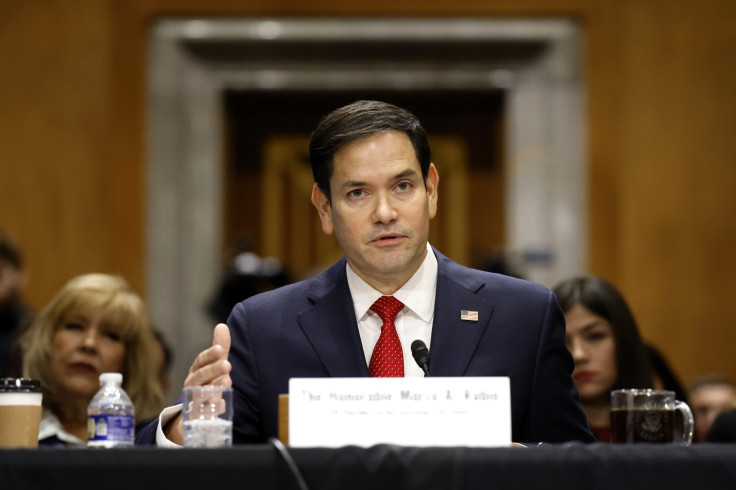
Secretary of State nominee Marco Rubio outlined what he described as "areas of friction" with Mexico that he will seek to address if confirmed to the post: Trade violations, migration and security at the border, and cartel violence.
Speaking during his nomination hearing, Rubio said "violations of trade agreements that have been laid out continue to be an irritant in our relationship."
He then expanded more on the other two points. Regarding the security situation at the border, he said there is "great interest on the part of Mexicans to bring the migratory under control." "An increasing number of cases of cases of people crossing the southern border are not Mexican nationals," but people crossing through the country, Rubio said. He added there is growing resentment by Mexicans in southern Mexico to migrants crossing through the territory as they are "bearing the brunt of the costs."
As for cartel violence, Rubio emphasized on the need for it to be "addressed" as it "poses a threat to the U.S," given the inflow of fentanyl and proliferation of criminal activity near the border, including on the U.S. side.
"They are vertically integrated and pose a threat to the security and sovereignty of the Mexican state. Journalists and politicians have been assassinated for standing up to them. It is in their interest as well as ours to work cooperatively to take these groups apart and not allow them to continue their reign of terror, not only in Mexico but spilling in the U.S.," Rubio said.
President-elect Donald Trump has taken a more hostile approach to Mexico, threatening to impose tariffs if the country doesn't crack down on unlawful immigration. Moreover, Republicans close to him have been touting a potential "soft invasion" of Mexico, which would entail sending troops across the border to eliminate cartel leaders and operatives.
During his 2024 campaign, Trump suggested he'd consider invading or bombing Mexico to fight drug cartels.
Back in July, Fox News's Jesse Watters asked Trump if he'd consider strikes against drug cartels operating in the country. Trump said yes, although the statement was also interpreted as a potential threat against the Mexican government in hopes of decreasing cartels' influence. "Mexico's gonna have to straighten it out really fast, or the answer is absolutely," the former president said.
Trump's pick for national security adviser, Rep. Mike Waltz (R-Fla.), along with Rep. Dan Crenshaw (R-Texas) even co-introduced legislation last year to create an Authorization for Use of Military Force to target Mexican drug cartels.
Plans presented to Trump have included airstrikes on cartel infrastructure, assassinating cartel leaders, and training Mexican forces to complete those tasks, according to Rolling Stone. The scheme would most likely include covert operations and patrol just over the border to stem the flow of drugs across the border.
© 2025 Latin Times. All rights reserved. Do not reproduce without permission.





